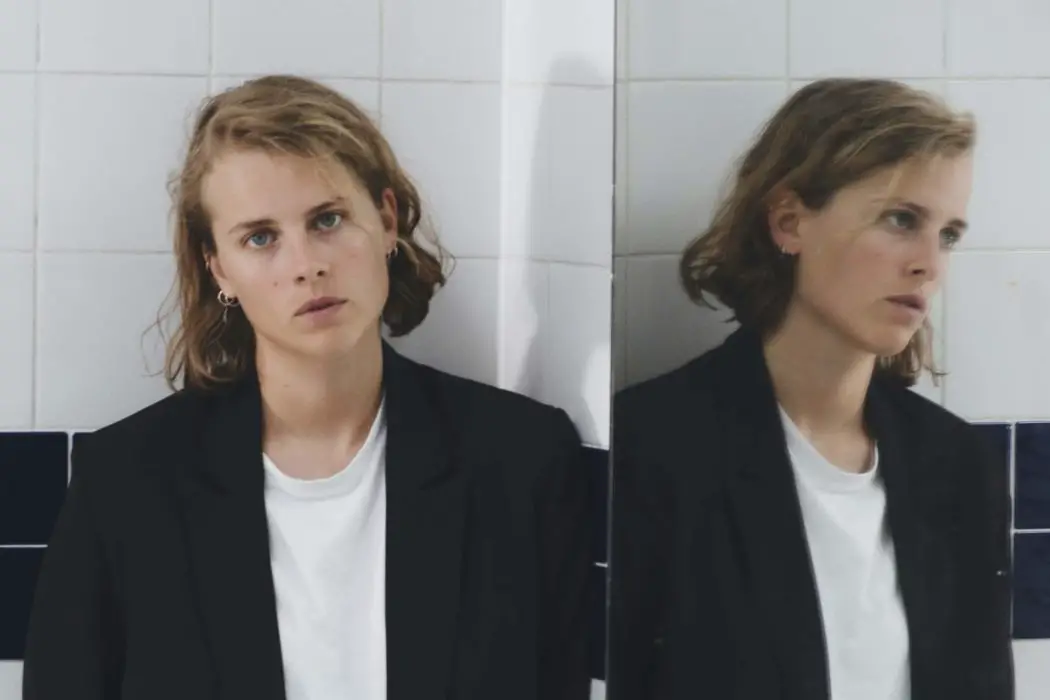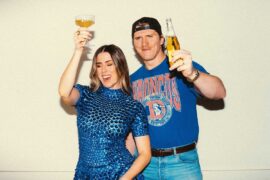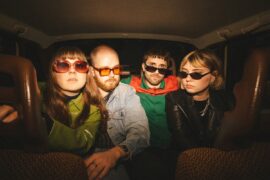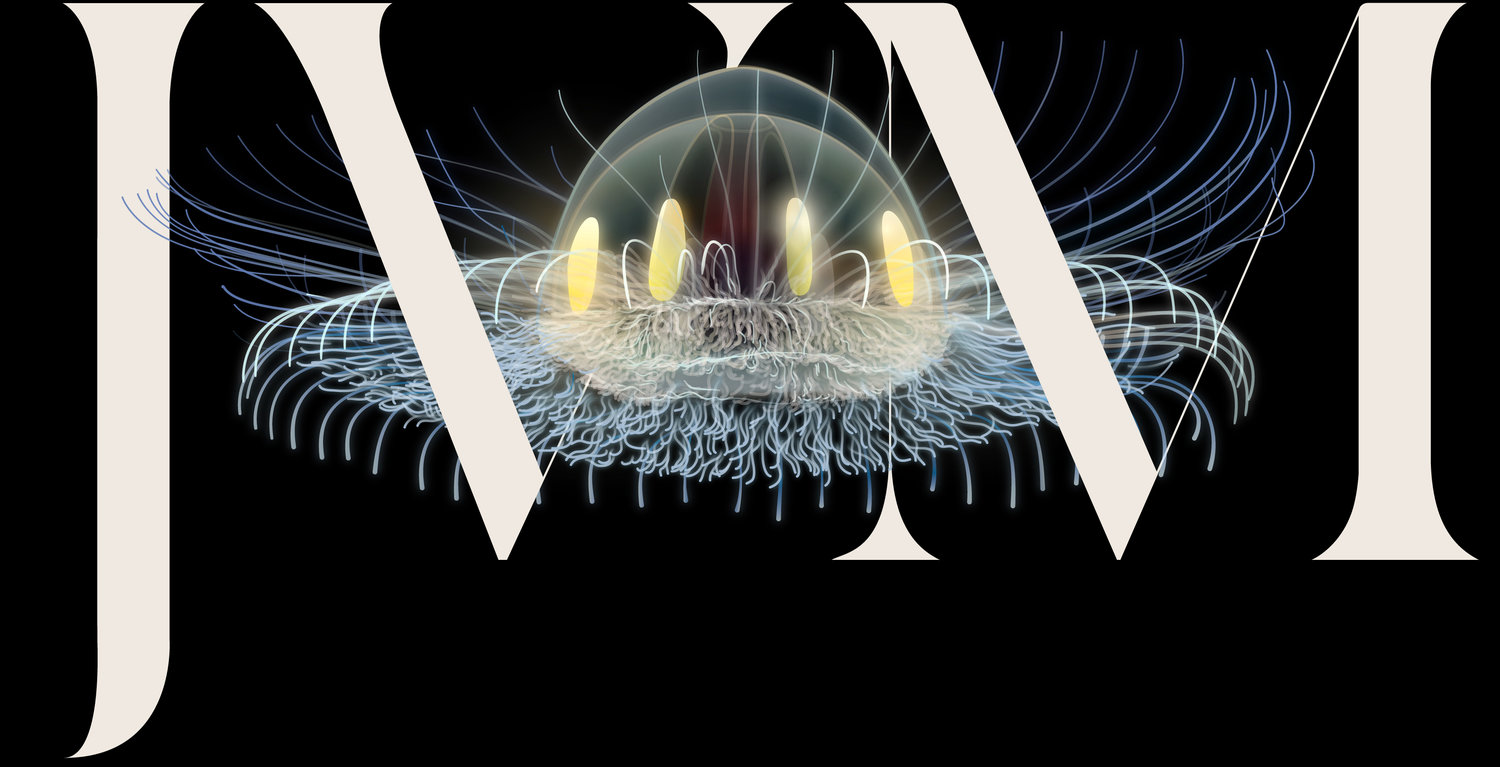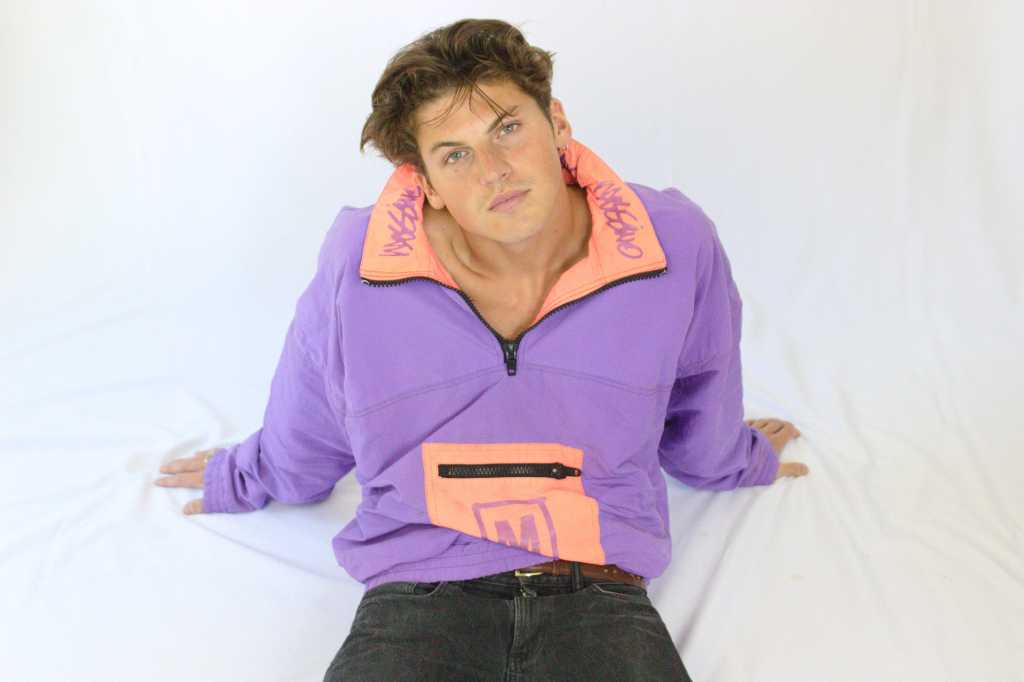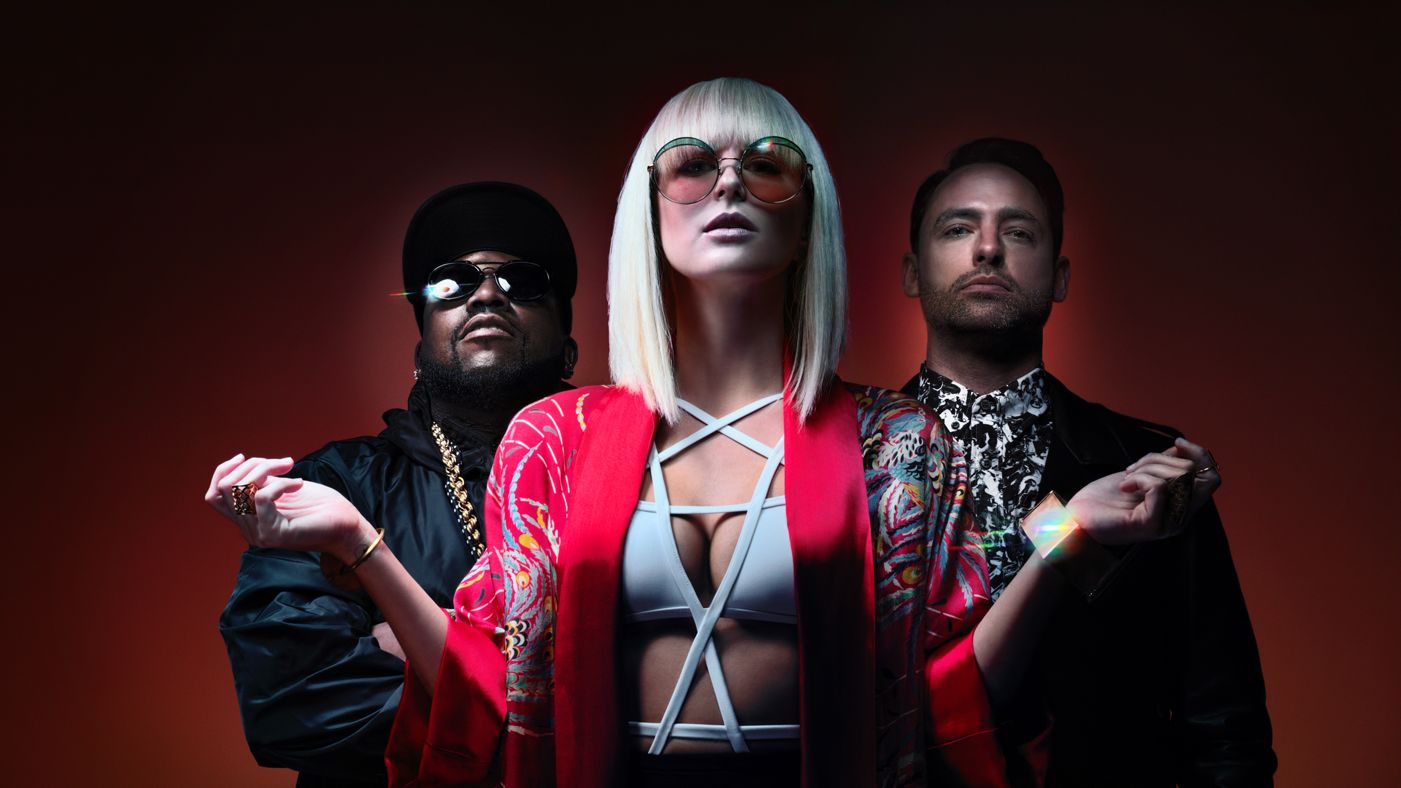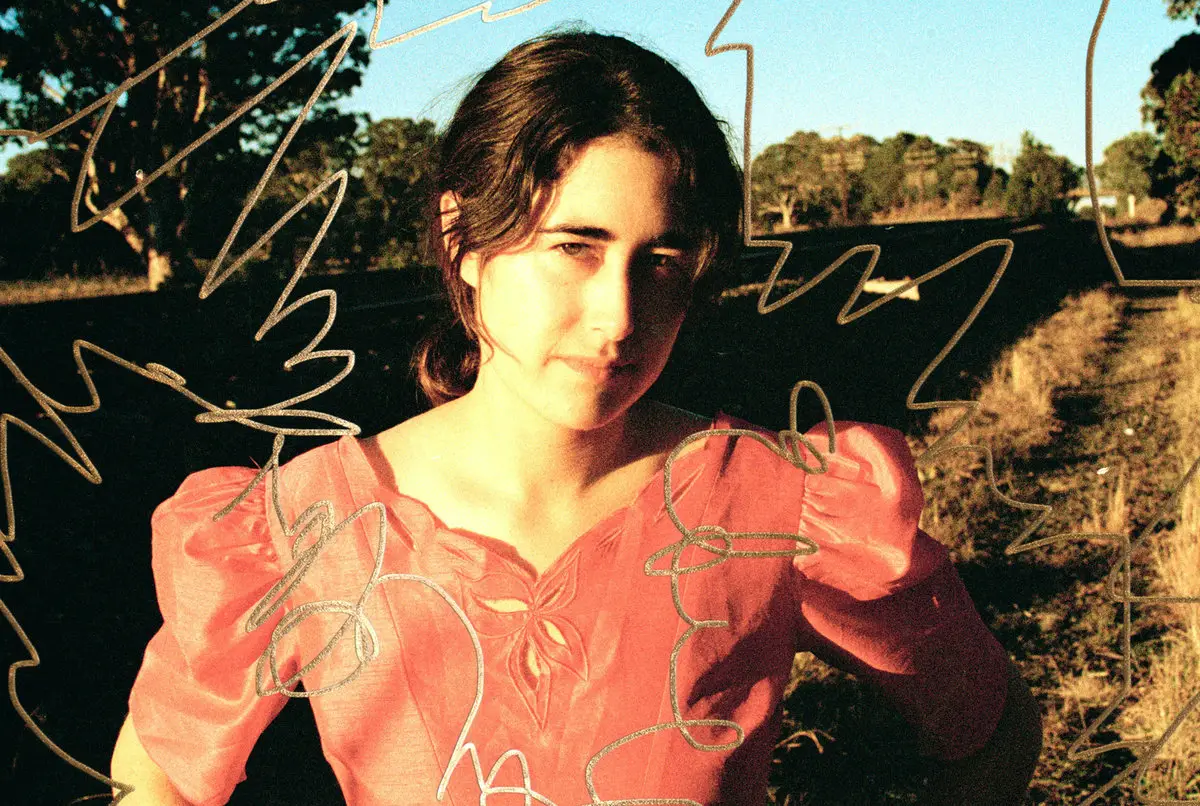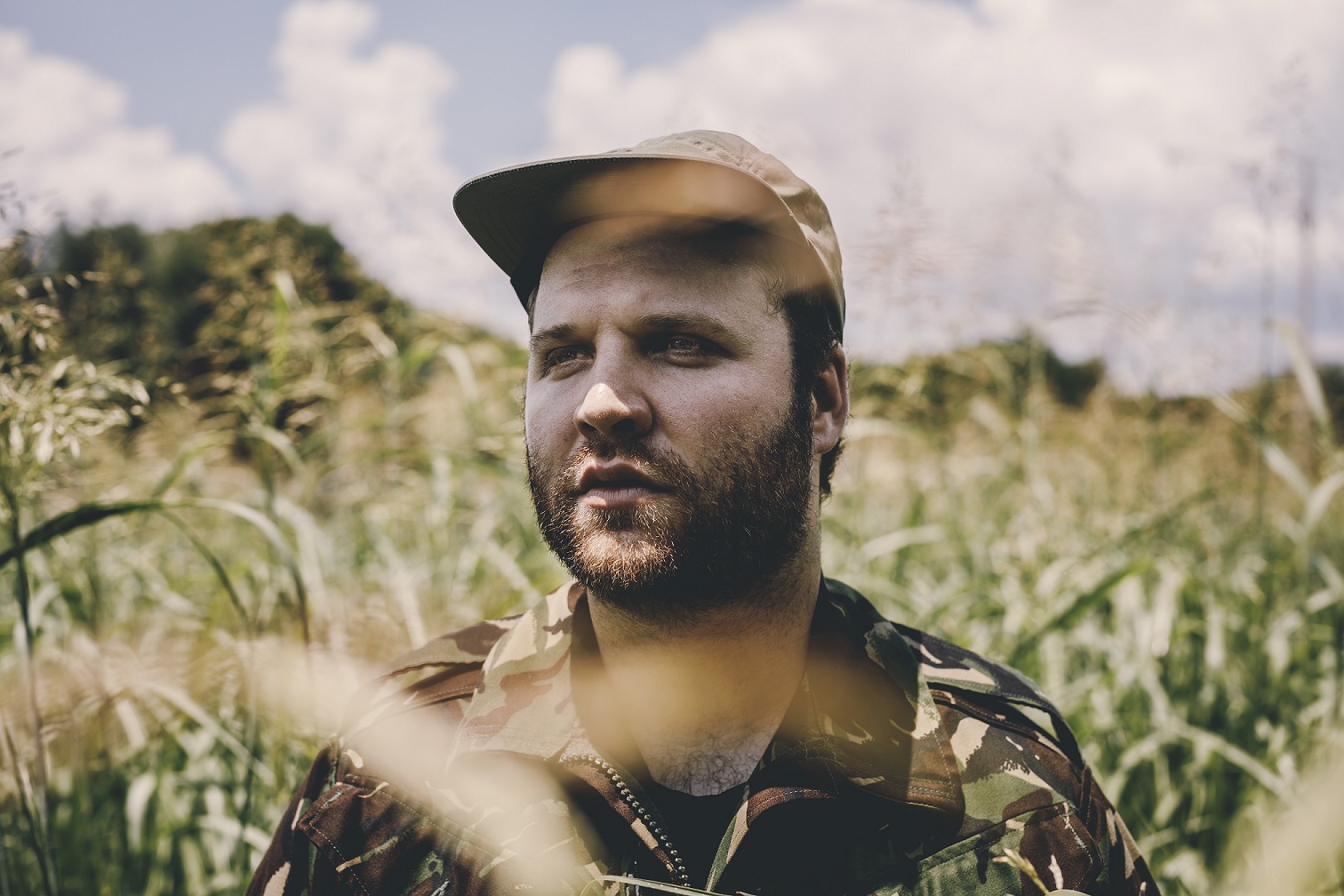Atwood Magazine caught up with Marika Hackman to discuss the creation of her Covers record, how limits actually made her feel free while creating, and tease what her next original album will sound like.
— —
Boundless creativity and endless potential are typically envied. The ability to make something out of nothing, to find inspiration in the simplest things, and have the end product be great seems almost magical. But for Marika Hackman, who’s been writing and playing music since her teens, strict guidelines seem to work best.
That’s why when she found herself back at her parents’ house, inside the same room in which she recorded her debut covers EP, armed with very few instruments and a list of songs she loved, she realised the perfect opportunity to create something new had emerged. Tasked with the responsibility of writing a whole new album – her fourth one – during a time when inspiration never seemed to come, she decided to switch gears and put her own spin on the songs she’d loved for years.

And so, Covers was born: Between the slightly awkward walls that saw her first real endeavour as a professional musician and teenager and the noisy, busy London flat she shares with three other people where silence is a rarity. The essence of Covers lies on every limitation that stood in Hackman’s way, like recording vocal takes without soundproofing, never forgetting the pressure of taking apart a Beyoncé song, and finding comfort within words and song structures that other people had set and she’d simply adopted.
Hackman’s fourth album is an achievement – the picture of an artist rediscovering her own identity and potential, flexing new skills, and making other people’s stories sound like her own with an impressive ease.
Who else would be able to make Radiohead, MUNA, Grimes, Beyoncé, Elliott Smith, and so many other artists sound like they belong together? Who else would be able to delicately thread so many different narratives into a single one and never make us remember that they aren’t related in the first place?
Covers sounds wholly original, even with big names penning the songs on its tracklist, and its sonic palette and introspection are now paving the way for Hackman’s fifth album, which she teases might return to the melancholic roots of her beloved debut We Slept at Last.
Atwood Magazine caught up with Hackman over Zoom to discuss the creation of her Covers record, how limits actually made her feel free while creating, and tease what her next original album will sound like.
Listen: Covers – Marika Hackman
A CONVERSATION WITH MARIKA HACKMAN

Atwood Magazine: First of all, so happy that you’re putting out an album this year, it feels like a gift to all of us!
Marika Hackman: Thank you! (laughs) It’s a bit of a cheat I guess, doing covers but, it was just good to be busy, have a creative endeavour to crack on with rather than feeling stuck in the middle of nowhere.
When did you first start coming up with the idea of making this album and putting these covers together?
Marika Hackman: It’s actually something I’ve wanted to do for a while, and I’ve done it before, I’ve been doing covers and making covers records. I thought that it would be a useful thing to have on the back burner if there was a time when I felt a bit uninspired or struggling to write or whatever. The Beyoncé song was actually half done already, so that was kind of a starting point. I guess in April I went to my parents’ house for lockdown to just have a bit more space and not be in the city and couldn’t really write any music, and just decided to have a go at maybe doing a covers EP, and maybe try and do three or four tracks, maybe five, and then it progressed and progressed and progressed. By the time it was summer, I’d finished 10 tracks, which was great. It’s just nice to put something out. It’s very nice that you say it feels like a gift, but it also feels really good as an artist to actually have an output, that’s very important to me, and to feel like I’m actually doing something, and it was really good for that. It’s been such a fucking weird year, it’s just nice that I was able to actually get something done.
When you started with the EP idea, what were the songs that are now on the album that were on the EP?
Marika Hackman: It’s whatever I started with, it would’ve been Beyoncé and Grimes, would have definitely been on there, and “Between the Bars” would have definitely been on there. What was the next one I did? I think I did Alvvays next, “In Undertow”, and maybe “Temporary Loan” were kind of the first ones flying around. I think those were definitely the starting kind of four or five that I did, and it would have been quite a different record.
Did you record at home or at the studio?
Marika Hackman: I recorded at home. So I started off at my parents’ house and I did maybe seven tracks there, and then got back to London and did the final three, which was great to be able to be insular and just have that situation where I was just working on my own terms, my own schedule, with all my own ideas. Obviously, there were challenges that came along with that, like, I don’t have soundproofing, I don’t have the best equipment in the world, I’m not particularly well-versed in editing vocals and the more technical side of things. So there were challenges like, people doing building work next door or living in a house with three other people who have jobs and need to be on phone calls and stuff like that, it’s very noisy house. A lot of these songs I’m actually singing takes where I’m having to stop the take every kind of four seconds and wait for something to stop making noise and then carry on, which is insane. But I got it done, so it was fine.
It sounds really exhausting.
Marika Hackman: (laughs) Yeah. It’s difficult. I feel like, especially with vocals, I could book a studio and go in and get them all done in a day. But having to do this kind of stop start and waiting for moments is frustrating, but maybe it’s good because maybe I focused on other things and came up with synth parts or a different bassline or whatever, so it all works out in the end, I find.

It was the first time that you produced something of yours on your own, right?
Marika Hackman: Yeah, yeah. I think the first time that I would say happily say that I did that. I did do a covers EP when I first started, it was the first thing I released. That was also self-produced but I didn’t really feel like I could call myself a producer at that point, I didn’t really know what that even meant, but it was funny because I actually recorded that EP in the same bedroom at my parents’ where I was recording this album, so it’s a really funny, clear indication of what I’ve been doing over the last 10 years, what skills have kicked up, which is really cool to see.
When you compare the experience of recording that first EP and the other covers that you had on your first EPs like “81” and “I Follow Rivers”, with recording this album, what do you see? How have you changed?
Marika Hackman: I think I maybe approach things slightly differently. When I was first starting out there was a real focus on playfulness and exploration, so I would take a song and I would just throw everything at it and see what stuck and just vibe it out the whole way through, which is how I made those first EPs anyway, even the songs that I’d written. Whereas now, I think I’m more meticulous in my approach, like I will have a vision for a song before I start it, I’ll map it all out, I’ll do a tracking vocal, it’s just a lot more ordered, the process. And then having much more technical ability, which is things like drum machines and synths and how to record those and make them sound really good, that’s been a big shift for me. And giving stuff space, I think, was the main thing I learned. It’s a very spacious record it sounds kind of stark and there’s loads of air in it, which I really like. I think that’s just because of quite simple arrangements and having the confidence to just leave something feeling seemingly sparse, and that’s how it should be, you know, it doesn’t need to all sound really massive and thick the whole time.
So talking about putting everything together, which song was the most challenging one?
Marika Hackman: I think that Beyoncé obviously, is a challenge on so many levels. I mean, it’s intimidating as a song anyway to try and cover, so even on a mental level before I even started there was a challenge there. Obviously she’s a very different artist to me vocally, I mean she’s one of the best vocalists that exists anywhere and that song is so about vocals, and trying to capture the essence of that song without being Beyoncé again is a huge challenge so that was before I’d even started. That verse and pre-chorus came really quickly, and I liked how different it was, how close up and intimate and raw it was sounding. So taking away that full band live sound that she has on it. I had that for ages and I just didn’t know what to do with the chorus, doing the chorus was a big challenge until I worked out that, basically, a wall of sound with harmonies and that big expanse would give the lift that she just does effortlessly by flying up into her falsetto and sounding amazing. I have to record sort of 30 vocals doing something that doesn’t quite get there (laughs) but it’s like to give that wide washy lift she gives the choruses, so that one took me probably the longest. I mean I actually did the verse and the pre-chorus two years ago, so it definitely took me the longest.
I am wondering how you took on the challenge of covering so many different artists and making every song your own. Because, I mean, there’s Beyoncé, who as you said so different to you, Radiohead, Grimes, MUNA. It’s such a diverse tracklist, which sounds really insane when you think about it because you’re putting everything together and making it all your own. How did you make sure that every sound was going to sound like a Marika Hackman take on each of these artists’ songs?
Marika Hackman: Well I think it’s kind of in the approach to choosing the songs, which was not really a conscious decision of “Which of these songs would make a great playlist that I can turn into a record?” it was about “What songs do I love? What songs do I know really well, and feel like I can capture an essence of?” and it was just born out of that. They’re all songs I’ve been listening to for a long time and I really, really, really love, and have a long relationship with. By the time that’s already established, when that’s years and years and years of listening to these tracks, once that’s established it makes life a lot easier than taking apart something that you don’t really know. Then I don’t even have to think about “What is a Marika Hackman” stamp on a track, it’s more just like enjoying the process of deconstructing these songs.
Something that was very helpful in giving a very cohesive through-line to all the tracks was the fact that I had very limited resources, I didn’t have a studio to go to, I didn’t have a band to come in, I couldn’t record live drums, I couldn’t record a lot of instruments in the way that I would want to, so I had my desk at my parents’ house which is my laptop, a bass, an electric guitar and an acoustic guitar, a drum machine, and then some plugins and some synths, and that was it. So when you’re using a very limited palette, you’re going to create a body of work that has a similar sonic atmosphere because I couldn’t take it anywhere else necessarily, so I tried to make them have a different vibe, some are more kind relaxed, the different drumbeats that kind of go through, but they’re all actually made on all the same instruments, which very much helps with making it sound fluid.
Sometimes limited resources can be frustrating, but because of the size of this challenge was it freeing for you to only have that to work with?
Marika Hackman: Yeah, I really like having parameters to work with and I think it’s really healthy. So much of what I would say the most difficult part of being a musician and being someone who creates as a job, is that you are so often confronted with infinity and having to create something out of everything, and at the same time out of nothing. You have no starting point and you have no endpoint in sight, and you have no way of knowing how you’re going to get from A to B. Whereas when you have parameters in place, you’ve immediately given yourself some semblance of a structure to work with and that’s a really healthy way. So the fact that already you’re starting with a cover, which is makes life 10 times easier because you’re not actually actively having to create something, that’s a huge relief, you’re taking something apart. So that’s parameter number one already set. Then you have these limited tools, it’s not this blank page, it’s not “I can do everything and that’s terrifying” it’s like “Oh, this is what I have to work with, and that’s what I’m going to do”, and that’s just such a relief and so enjoyable to work in that way.

You said you’ve had such a long relationship with all of these songs. Why do you think that you’ve gravitated towards them throughout your life?
Marika Hackman: I mean they’re all really good songs is what I would say. Bands like The Shins, I was listening to “Phantom Limb” when I was a teenager, a young teenager, and I was like a huge fan of The Shins and I think they are a band that have really informed so much of my songwriting particularly earlier on with the EPs and and the first album, they’ve had a huge influence on me. I do gravitate towards songwriting in the artists that I listen to more so than snazzy production, which I think a lot of people also just really gravitate towards that, if something sounds really good and it’s produced really, that’s a very satisfying thing. I’m always in my heart looking for really good songs, and I think with all of these tracks I have stripped them back and I’ve changed them and re-shuffled them and they still stand up as amazing songs, and they still sound like those songs. That’s not to do with me so much, that’s to do with the fact that at their core they’re fucking good.
Has your relationship to any of these songs changed after you recorded your own version of them or not?
Marika Hackman: I don’t think so. I mean I feel like maybe with “Jupiter 4”. I love that song and I feel like maybe covering it gave me a deeper connection to the lyrics and how it’s a love song but it still sounds so devastating, the idea that love is devastating and floors you, but the lyrics are actually really positive and beautiful and the song is just kicks you in the stomach and I hadn’t quite appreciated that before I covered it. That’s given me a more intimate relationship with that song, but I think generally I still just have a lot of respect for all songs, maybe a bit more for having deconstructed them, a bigger appreciation would be the only thing.
With the new lockdown in he UK, are you still doing the performance on Friday?
Marika Hackman: Yeah, we are. We actually did record it before the rules came in so we got away with doing it thank fuck because we thought we would have, you know, by November we’d be fine. Then everything started tightening up again it was like “Fuck this, we’ve got to get it done” so we just went in and did a take and then it will be out on Friday. I didn’t want to cancel it, that would’ve felt shit. I can’t wait to play shows again and doing that was such a nice reminder, but it’s still without a crowd and I really, really, really want to play some shows. It’s been the longest I’ve ever gone in my career not playing a show and it feels fucking weird. It was nice to get a little reminder, and I didn’t want to cancel it because I felt like if you can still, put on a bit of a performance and put it out there, I think people need that at the moment, it’s a bit of a release.
Of course, but then you go from playing a show to an audience on a stage with lights to playing a show inside an empty swimming pool. What’s the story behind choosing the swimming pool?
Marika Hackman: I love swimming, I love pools and I go swimming pretty much every day, it makes me feel very calm and sane. It felt like something a bit different, rather than, I don’t know, an empty venue which felt really bleak. It was kind of cool, just like there was an empty swimming pool, let’s get in there and have a go!
What are the acoustics like inside a swimming pool?
Marika Hackman: Pretty hectic. Yeah, especially with the drums. But actually it sounded pretty good. I think it’s nice for vocals, that empty pool vibe, as it’s pinging around. It was quite a challenge, but we’ll see.
Watch: “Playground Love” – Marika Hackman
It’s the first time in any album of yours that we don’t see you on the cover in any form. So, first of all, I guess why did you choose that, and then my second question is how did you come about choosing that collage?
Marika Hackman: I think they’re all clippings from magazines and stuff, a friend of mine actually did it, George. What’s interesting is on my first album cover that’s not actually me. Lots of people think it is me but it’s not, the woman on the bed, that’s not me – although she has exactly the same feet as me which is quite weird. It was a picture I saw and then I was like, “I want that to be my album cover” and then I worked with the artist to do all the pictures inside which are of me.
I love all of those photographs so much.
Marika Hackman: I mean, yeah, Glen Erler, is a great photographer and I was already a huge fan of his before I worked with him so that was pretty fucking cool. But it still carries that feeling of someone being on a cover, a human presence in a way that would be reflected back to me. I’ve never been told that I have to have my face on a cover, I feel like some people get pressured into that and it’s never been something that’s really been a conscious thing. I definitely knew that in the second one I wanted it to be a portrait, a group portrait, and the third one was a lot about exposing oneself so I felt like me being up there and exposing myself was really important. But coming up to Covers, there’s no reason why I should be anywhere near the cover of that, it would be an exercise in vanity to put my face on. I think what I was looking for was something sparse that felt like desolate, and the idea of collage really appealed to me because I feel like that’s what doing a cover is, it’s like taking something and ripping it up and sticking it back together and making it look different, but still carrying an energy with it that is familiar. So I had that in my mind and then my friend, George Sydney (@ephemera_archive_) does lots of collage stuff that has this really amazing space to it, and we just worked together a bit and he came up with some ideas and sent me over some images, and then this was the one that stuck. I like the way it looks like a moonscape or a kind of empty planet, but then there’s also a bit of it looks like a city skyline that also feels really empty, and it’s just got that real feeling of bleakness to it that I really really liked.
The other visuals that we have on YouTube videos are abstract lights and feel very blurry, like it’s 2am and you’re driving and tired, and you’re seeing all the city lights. How did you choose those?
Marika Hackman: It’s just going for a feeling I think, listening to a track and thinking “How does that make you feel?” and lagain having the space to give it an aesthetic that supports an emotional response but isn’t like driving something down your throat. When I listen to “Between the Bars” I picture candles and warmth, but it’s quite lonely, and it’s quite dark and it feels like a very nighttime-y kind of song. There’s something about “All Night” that makes me feel like this vast expanse and the sky and clouds and this space to be floating through. Grimes feels more city-based to me, it feels more industrial and it feels exactly like driving a car at 2am and you’re kind of tired but it’s kind of cool and that’s the best time to listen to music isn’t it? It’s just very impulsive and intuitive, the way that I’ve gone to these kind of things, rather than coming up with narratives, because they’re not my songs, they don’t have my narrative and I can’t pretend otherwise. It’s kind of letting the songs really just take the fore, and not making it all about me.
Watch: “Realiti” – Marika Hackman
How do you think that making this covers album will inspire your next original record?
Marika Hackman: I think it’s a confidence boost, which is always great, to know that I could do these production things on my own. So that’s really nice to know. I think that element of space is going to be a really important thing, even to an extent like song structure and stuff like that, having obviously taken loads of different songs apart and looking at the way things are structured. I just think it’s taken me slightly back down a more melancholy route, which is more akin to like my first record, and that maybe I want to have a go at that again. Not focus so much on gnarly guitar riffs and cool bass lines and maybe go back to songs that are straight out of the chest, and see how they sound now rather than when I was 22 writing a record. Six years down the line seeing what’s changed, and having the confidence to just sit back with that, which I get with every record, you know, they’re all a learning curve.
You know I’m going to publish this and people are going to go insane because they’re going to think you’re going to make We Slept at Last part two.
Marika Hackman: Maybe it will be! I mean, it’s very early days. I’ve started writing and it is going to be, I think, vibewise more similar but it’ll also be a very different record. I’ve grown up a lot and I write in a very different way now, and because I never want to make the same record twice. It’s definitely going to be, almost also with I’m Not Your Man, songs like “Cigarette” and “I’d Rather Be With Them”, that kind of feeling. But also, like I say, I’ve literally just started so that can change in a heartbeat, I could write another two songs and suddenly the whole record has shifted so we’ll see. But that’s my aim, certainly, at the moment.
My last question, if there were going to be a Marika Hackman covers album with a variety of artists on it, which songs do you think would have to be on this album, and which artists would you want to cover your songs?
Marika Hackman: I’d love to hear Billie Eilish do “Animal Fear” from my first record, I feel like the gothic lyrics would suit her vibe but she would take the production somewhere completely different. I’ve done a cover of Beyoncé’s “All Night”, so it’s only fair to hear her do a cover of mine – imagine hearing Beyoncé singing your lyrics, that would be insane. I think Bon Iver could do something really epic with “any human friend” – I think the song would suit Justin Vernon’s voice really well. Hearing Beach House do “Boyfriend” would be a dream come true and I think they would completely flip the tone but it would still sound like a ‘fuck you’. Also it would be incredible to hear a Radiohead version of “Before I Sleep”, I think Thom Yorke’s voice would elevate the melody and I reckon they’d do something batshit with the production.
— —

Connect with Marika Hackman on
Facebook, Instagram, Twitter
Discover new music on Atwood Magazine
? © Luka Booth
:: Stream Marika Hackman ::

